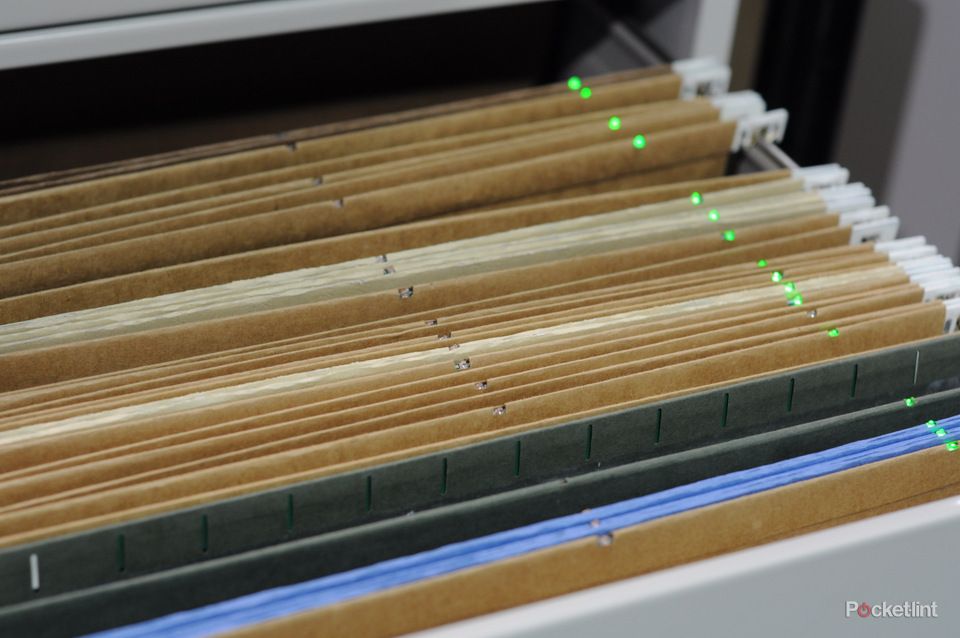Sometimes at CES even we were surprised by just what ideas people have had in the previous 12 months. This year, a man has decided that what we need in the internet age is a new, high-tech way of storing our old paper files.
As crazy as it might at first sound, we agree that the paperless office is something of a myth. As hard as we try, there's always some bureaucracy that necessitates printing something out, and the subsequent filing of that thing. Think tax records, or any other government-related paperwork and you'll start to realise just how much we still use paper. And once you've realised how much you use paper, imagine what it's like in the places that collect this paperwork and keep it.
The iMD smart filing system is designed to help people with lots of filing keep track of where everything is. It's essentially a massive database that has the ability to reference as many as 4 billion physical files. When you come to look for a file, you simply search using a computer, and when you've tracked down the file in the database a light will illuminate on the filing cabinet where it's stored, and on the draw which contains it. Open that drawer, and inside are files that each have an LED on them, with your searched-for file illuminated in green.

Even putting a file back in a different cabinet won't confuse the system either, because it will just keep tracking the folder, no matter where it ends up. Costs for the system are about $2000 for the master filing cabinet, with subsequent cabinets costing $1500. The file wallets are included, but if you need more they currently cost about $4 each. So this isn't a small cost if you need to keep a lot of paperwork.
We asked what happens if more than one person is using the search at the same time, and were told that each search would need to be completed before the next one took place. The system queues requests though, and there's always the possibility that in very busy companies it could email users to let them know when they should go and get their file. The developer of the system is apparently quite open to customising it for users who need different features.
In the future, there could also be iPad and mobile phone apps to guide users to the right file, and allow searching when you're away from a computer. Although this system is unlikely to change our lives, we simply couldn't help being quite impressed by it.

